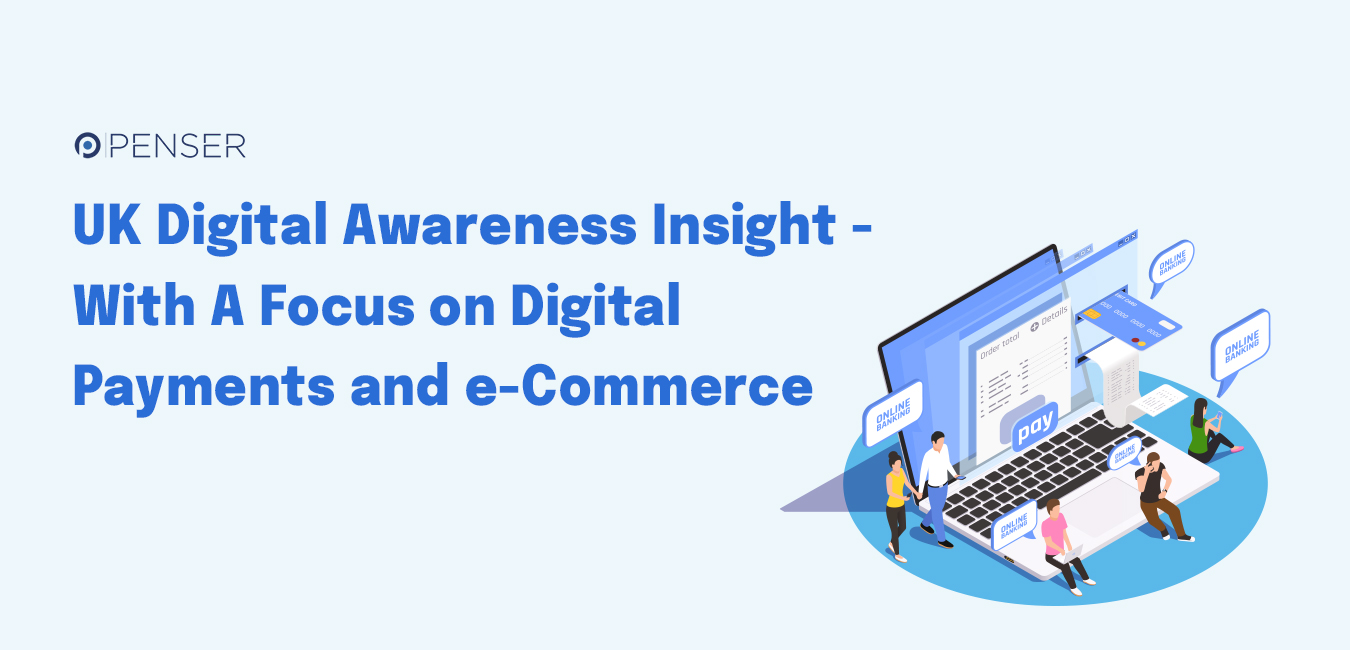
Technology has taken the world by storm, and the UK is in no way behind. In the UK, during the pandemic, 87% of the purchases were through e-commerce websites. This simultaneously resulted in an increase in online payments. In fact, the total value of digital payments is set to cross £210 million this year and reach at least £340 million by 2025.
Here is an insight into the increasing awareness and usage of e-commerce and digital mode of payments in the UK:
Increasing e-Commerce and m-Commerce Awareness
- In 2019, retail m-commerce sales revenue was £50.36 bn, which increased by 21.4% to £61.14 bn in 2020. Mobile commerce (m-commerce) comprises 54.2% of the total retail e-commerce sales. Industry experts estimate that UK retail m-commerce sales will continue to grow and reach £105.28 billion by 2024.
- Smartphones are the leading device used for online shopping. Mobile phones generate more than 50% of all online traffic. In the UK alone, 82 billion hours were spent on shopping applications in 2020. By 2022, the number of smartphone users in the UK is estimated to cross 53.96 million. Thus, further impacting the mobile commerce industry.
- Amazon.co.uk (55% YoY growth) and Tesco Groceries (150% YoY growth) generate the highest revenue amongst all the e-commerce websites.
- ‘Click and collect’ is the preferred delivery option of UK online shoppers. ‘Click and Collect’ allows consumers to opt for self-pickup of online purchases from specific locations, instead of having the item delivered to their doorstep. Almost 75% of online shoppers prefer to click and collect.
- According to Statista, the ability to compare prices for the same product without moving from store to store is one of the crucial reasons for shopping online.
- Based on a survey, 53% of SMEs in the UK have an eCommerce presence while 26% of the respondents felt that an eCommerce platform is not relevant to their business. Others stated lack of time and shortage of staff as a problem.
Increasing Digital Payments Awareness
Online banking users have grown significantly in the UK. Unlike other countries, the UK banking sector has been a step ahead, whether it is regarding transparency in banking or encouraging digital banking.
- Digital wallets account for 32% of all online payments in the UK. According to Statista 2020 Fintech report, over 81% of individuals across the UK were using some form of online payments which is the highest share globally.
- In 2020, digital wallets took over debit and credit cards as the most used method of payment. Remote payments received by Square’s business clients increased from 2% in January 2020 to 33% in April 2020 at the height of the pandemic.
- Buy Now Pay Later (BNPL) is another growing payment scheme that has helped many individuals fulfill their longstanding purchase goals. According to finder.com, online purchases using BNPL services are growing at a rate of 39% per year. Klarna is the most popular BNPL app with 460,000 active monthly users. Almost 10 million consumers in the UK will avoid shopping at a store that does not offer BNPL payment/checkout option.
- Four out of ten B2B payments were made via the Faster Payments Service or remote banking.
How Digitally Aware is The UK Population?
- Online shopping is extremely popular amongst millennials and Gen-Z. The population between the age group 16-24 preferred mobile shopping. While 95% of the individuals in the age groups 35-44 and 45-54 preferred shopping on the web.
- Younger generations are more likely to use online banking. In 2020, 90% of Gen Z and 90% of individuals in the age group 25-34 banked online. While 69% of the online banking service users belonged to the age group 55-64. Only 49% of the senior citizens in the UK, from the age group 65 and above used internet banking.
- 50% of adults in the UK use mobile banking. 86% of these respondents consider mobile as their main banking channel. With 62% of them willing to change their banking service provider if they are not satisfied with the mobile experience.
- Although almost equal, British men prefer online shopping with 66% of them shopping online as compared to 57% of women.
The UK has always been a forerunner when it comes to financial technology (FinTech), digital banking, or any other new-age development. In fact, Britain ranks within the top 10 countries in the world for consumer FinTech adoption. Almost 71% of the entire population uses FinTech products. This is more than the fintech adoption rate in the US, France, and Italy at 46%, 35% and 34% respectively.
Penser is a UK-based fintech and payments consulting firm. Our team of professionals has experience working with leading global companies across various financial technology sectors such as online payments, digital banking, and mobile payments. We can also assist you with restructuring your business, strategic planning, and digital transformation of your business. Get in touch here hello@penser.co.uk to learn how we can help your fintech business penetrate the UK and European market or expand globally.
